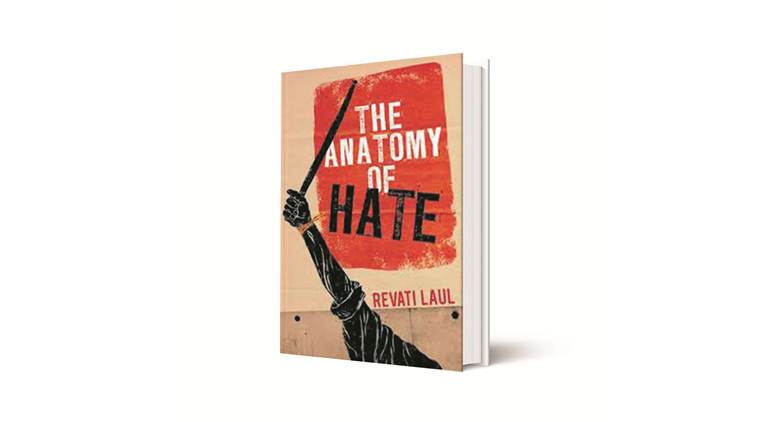Written by Seema Chishti |Published: January 12, 2019 1:09:47 am
The Hate We Give
An extraordinary book that looks at the people beyond the mob involved in the 2002 Gujarat riots.

Three intimate portraits, journeys of perpetrators, participants, and once-gleeful bystanders in the Gujarat 2002 riots, now 16 years on, are what constitute Revati Laul’s The Anatomy of Hate.
The first pogrom of this millennium in India is brought home by swinging the lens on the ‘mob’. It has been very convenient, whether in Nazi Germany or at the time of the anti-Sikh violence in India in 1984, or in Gujarat, to reduce the problems to that of a “mob”. However, Laul, 45, felt it might be more instructive to focus on some people who constituted that crowd, those who willfully participated in the orgy of hate.
Laul firmly believes that “the personal is political and the political deeply personal”. She recounts how happy she was when Svetlana Alexievich was awarded the Nobel Prize in Literature in 2015; the Belarusian investigative journalist and historian, lauded for mastering narrative non-fiction as a genre to recound important historical moments, famously remarked, “Do people ask for ‘non-eggs’ for breakfast? They do not. Then why use the negative of ‘non-fiction’ to describe the tool I have picked?”
A student of history, journalist and filmmaker, Laul explored Gujarat during her posting to the state as a correspondent in 2003, a year after the “divide” had congealed into a palpable and openly-accepted faultline. When she was filming a ‘harmony’ workshop, she met a man she calls Pranav in the book. The workshop was examining prejudices with a view to breaking walls. Laul had generally panned the camera on a person in the first row, and without expecting much, had asked if the workshop had made a difference. “Yes, he emphatically nodded, and said it had transformed his life,” she says. That first meeting would eventually lead to this book. “We tend to freeze categories and take violence and hate as unchanging. But if we are not able to recognise how capable it is of altering, forget tackling it, we are losing out on even understanding it,” she says. The character, Pranav, undergoes a radical shift from being a cheerleader to breaking free, by his own efforts, of the propaganda he had been fed since childhood. The painful uprooting from his prejudiced past, the quest for greater truths, and confronting himself are portrayed in detail.
Laul also charts the deep anger of Suresh, another protagonist in the book, who is now in jail for his many crimes. The third character Dungar, a Bhil tribal, is drawn into the Sangh Parivar’s bid to recruit tribals as foot soldiers for the enterprise by his desire to get ahead in life. But this idea is at odds with his patchy journey that begins after the violence has ceased. He battles court cases, rebuilds the Muslim homes he had burned down to urge victims to withdraw cases against him. All these induce other changes in him.
Laul credits Mehmood Mamdani’s When Victims Become Killers: Colonialism, Nativism, and the Genocide in Rwanda (2001), based on Rwanda’s Hutu-Tutsi violence in the Nineties, for giving her a useful framework to help understand why what should be confident “majority communities” feel like victims. Laul’s narratives do not substitute a focus on personal agony to understand the political actions of her three protagonists. On the contrary, she understands and shows how much of what is seen as personal prejudice is actually propaganda mouthed intentionally over decades, and the ways in which they feed into ordinary lives. The fantasy peddled by the TV serial Ramayana is fulfilled by Advani’s Toyota rath yatra in 1990, or how the Sangh dislikes cricket matches that Pranav helps organise because they dissolve hardened boundaries between religious communities. That makes the politics of hateful division rather difficult.










.png)











No hay comentarios:
Publicar un comentario